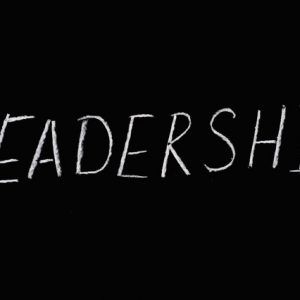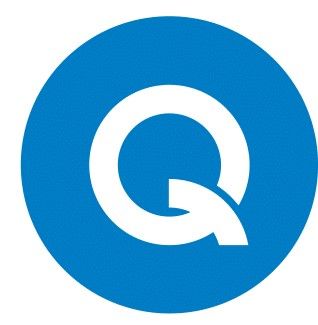By Stephen Otieno
Choose a random city in Kenya and stand at the top of one of its tall buildings. It is easy to guess what you would see. Most probably, you would see a child hawking snacks, candy, or any valuables. You would see roadside vendors profusely negotiating prices with passersby. At the alleys, especially in the capital, you would possibly spot a helpless screaming woman mistaken for an actress-on-duty, only to realize later that she was mugged. Mugged by the alleged ‘leaders of tomorrow’, the youth, in need.
If by any chance, you get to see a running woman carrying a small sack of ripe colourful oranges, and a toddler wrapped at her back, don’t mistake her for a mad human. Neither should you ask her name. She is ‘Wanjiku’ running away from the city council officers hunting her for vending along the city’s walkway. From child hawkers to Wanjiku, an ordinary Kenyan, it’s apparent that the core issue is ‘the economy’. All arrows in the cycle point to the top leader. Then a question pops up on the large screen: What would I do if I were chosen to lead Kenya?
The stain on the white collar, the core problem
The gap between the haves and the have-nots continues to widen with each passing tenure of Kenyan leaders. Political leaders, who play a fundamental role in actualizing economic development, tend to focus more on the poor citizens for their political mileage rather than for poverty mitigation. Surprisingly, the World Bank reveals that Kenya’s economy attained an average economic growth rate of 5.7% between 2015 and 2019 regardless of the continuous increment of poverty levels. The state of the economy, in terms of the burden of life imposed on an ordinary Kenyan, Wanjiku, has a hand in the 483-suicide-cases that took place in just three months.
Decisions made by leaders of Kenya have both direct and indirect impacts on the lives of the people. When funds meant to create jobs for the youth are squandered by leaders who were placed in power by the people, the whole system drowns in the murky waters of corruption. In turn, the economy deteriorates as helpless citizens are forced to make a living from the extreme ends.
The recent tax increments increased the burden of living even further. It is at this point that some parents are sometimes forced to send their children out to hawk and fend for themselves. It is at this point that mugging and vending on the walkways thrive. It is at the very point that some adults and children consider death as an option, they choose to escape from the harsh reality, they translate into mere statistics. The arrow points at the top leader in the hierarchical set of factors.
A Kenyan who plans their future with political promises is bound to be in for a rude shock. While most of these promises are given in colourful events full of zest, most of the voters often regret only a few months after elections. Sometimes the only benefits they live to count are the colourful t-shirts and reflector jackets issued to them during political rallies. Nonetheless, sometimes the blame is on the voters who empower politicians to lead them, not to be leaders. A study by Kyeli Mukeke of the University of Nairobi reveals that a big relationship exists between political leadership and economic development. Still, the arrow points to the leader. To lead Kenya needs more than being a politician and having a popular name.
The stain neutralizer, the proposed solutions
In my perspective, a leader is not a master but a servant of the people. Therefore, if I was chosen to lead Kenya, I would first accept to be a servant rather than a master. With this, I would have the right mindset to work for the people rather than to seek dominance and honorary honour.
The root cause of the problem lies in the poor choices of leaders by Kenyans. For this reason, I would first promote civil and civic education to enable people to understand their role and the essence of their participation in the matters of the state. I’m talking about voting prudently, denouncing corruption at an individual level, and learning to view leadership beyond politics.
Without a wave of new changes, the presence of a new leader is never felt. So, yes, I would change the systems. This does not mean that I would disapprove of all the economic development strategies imposed by my predecessor. But I would make changes in the identified areas of weaknesses. This is a promise similar to making an old cloth look new following a change of a maidservant. Again, this is not about the now-famous bottom-up or trickle-down economic models, it is about identifying the problems and facing them head-on.
Creating employment for the youth and nullifying taxes that increase the burden of life for ‘Wanjiku’ would top my list of priorities. Improving access to healthcare and focusing on enabling self-sustainability would be among the fundamental objectives. With more than 50-years of independence, it would only be reasonable that we borrow funds responsibly. I’m saying I would reduce the burden of debt and explore the dormant resources within the Kenyan territory.
Yes, Kenya can
At last, I would go back to the top of a random building within the country and watch. Then, I would hope to see all children heading to school, including Wanjiku’s. I would hope to see ‘Wanjiku’ selling her oranges in an organized open-air market. I would hope to see buyers purchasing products with little or no price negotiations. From the rooftop, through the clear windows of the city towers, I would be proud to see the so-called ‘leaders of tomorrow’ leading meetings and projects of today because today is the tomorrow of yesterday. Only then would I count myself successful as a leader of Kenya.
***
Stephen Otieno is a financial analyst, a CPA II, and a creative writer. According to him, when all is said and done, little is remembered and revered. For that reason, he finds passion in writing about the world and the people in it. He writes to inspire, educate, and provoke thoughts. Stephen is currently working on his first book and remains hopeful for its success. He has won one award subject to writing and is aggressive for more. He has a writing page called 'Steve The Writer'.





